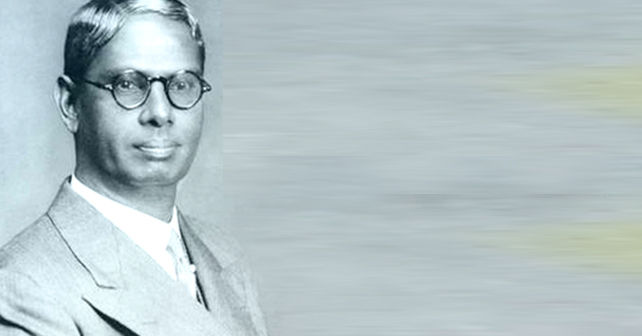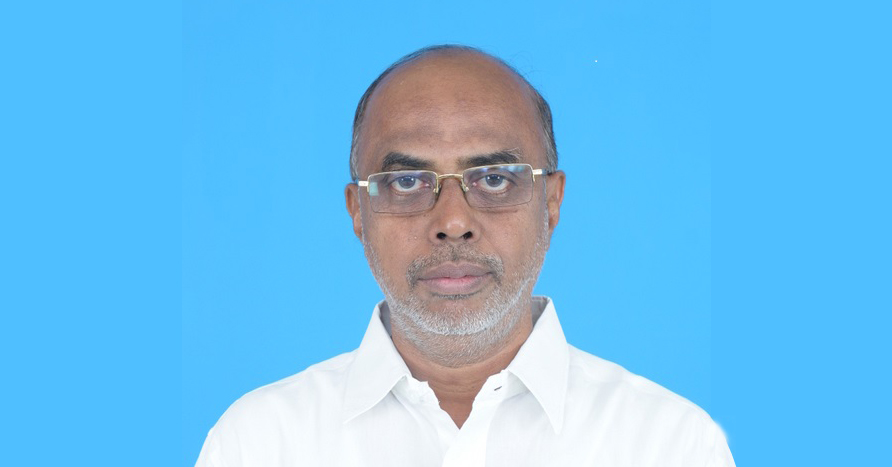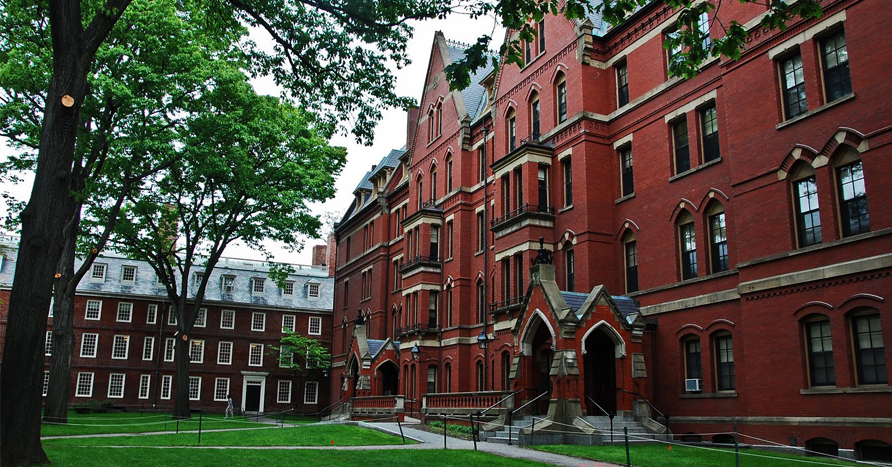Century of Justice Party (1916-2016)
90th year of Self Respect Movement(1925-2015)
I am a communalist and I am not ashamed to call myself a communalist. for I know that communalism…. Enter democracy, Exit Caste should be the motto of every Indian nationalist
One Budget debate in the Central Legislative Assembly of pre independent India had lasted for full two days and nearly forty members had partaken in it. It was indeed a ‘very interesting one’ except for the absence of the scathing but scholarly criticism of Mr.R.K.Shunmukham, who was by accident in the chair. This was no small a blessing to Sir George Schuster who, with a smile irrepressible and a sigh of relief prefaced his reply “One might be thankful for small mercies, still more for a great one.” A splendid tribute this was and its value is infinitely enhanced in view of its source, the Treasury Bench.
The confidence and cock-sureness with which Mr.Shunmukham criticises the financial policy of the Government cannot but remind us of Gopala Krishna Gokhale. After that great man, there have no doubt been some able financiers; but no one other than Mr.Shunmukham seems to anything like approach him in his marvellous grasp of details and masterly method of criticism. If Gokhale could make a Finance Member spend many an anxious night and dream unpleasant dreams on the eve of the budget debates, Mr.Shunmukham also can lash into rapt attention a half-dozing Finance Member who would, with note and pencil in hand, perturbedly lean forward and listen to his trenchant criticisms with evident embarassment. To be spared this embrassment is no small a mercy and the tribute of Sir George was no less spontaneous!
There are some men who thrust themselves into politics and others upon whom politics is thrust. Mr.R.K.Shunmukham belongs to neither of these two kinds. Though politics is not his ‘family trade,’ yet none seems to have been born with a greater right to the heritage of high politics, than Mr.R.K.Shunmukham. At the early age of twenty – six, Mr.Shunmukham entered the Madras Council and was baptized in the beneficial politics of the Justice Party. As a secretary to one of the ministers for some time, and as a member of the Council, Mr.Shunmukham was unmistakably sowing the seeds of future fame.
“The spirit of youth,
That means to be note, begins betimes.”
Mr. Shunmukham’s real place is not the Provincial Legislature. He was born for a bigger forum. The dizzy heights of the Delhi Legislature and the more dazzling prizes that were possible in that Parliament attracted him towards it. With a dauntless courage and exhaustless resource which so well characterised that wonderful F.E.Smith, Mr.R.K.Shunmukham enlisted himself in that indomitable army of the Swarajist Opposition so ably manned and of the so tactfully headed by Pandit Motilal Nehru.
Mr.Shunmukham is one of the very few successful debaters in India who are noted for the skilful use of their dialectical talents in their political battles. I am afraid Mr.Shunmukham is not very fond of purple patches and mouth – filling phrases. As a Journalist put it, Mr.Shunmukham always conveys the maximum of ideas in the minimum of words. Few can help writhing under the terrible lashes of his tongue. He gets self – saturated with his theme and hence wields an enormous power in the Assembly and masculine and his feeling for form hardly rivaled by any. He will wear his adversaries down by his tireless attack, by the intensity of feeling and the versatility of proof. An ‘Orator’ in its best sense Mr.Shunmukham is not; but as a vehement debater, few can rival him.
Mr.Shunmukham would hunt after his opponent and drive him out of his hemisphere. Even if that opponent were clothed with brief authority like the then Deputy Leader of his party, Mr.S.Sreenivasa Iyangar, he would not spare him. Mr.Shunmukham is essentially a peace – loving politician but always armed to the teeth and when war becomes inevitable or when it lies on his way, he would fight with gallantry.
When a genius is made, they say, nature breaks its mould. And it would be a vain attempt to bring Mr.Shunmukham under any of the categories of politicians we know. Among the many things he is noted for. Strict conformity to party principles is not one. To know the views of his party on a question is not always to be sure of his own opinion. If Mr.Shunmukham belongs to a party, it is not because he loves it, because he finds it a mirror of his own mind. He is more in a party than of it. Party is a necessary evil and one must be thankful that he condescends to give it at least that cold, formal recognition. He is restive and impatient within the bounds set by party discipline and oftener than not he bursts out of them. Hence the paradox of Mr.Shunmukham’s politics it is rather mystifying that he is a nationalist in the Justice Party and a Justicite while in the nationalist party. (Swaraj Party) Mr.Shunmukham hates monopoly of every kind and nature. To strike at its root is his aim, his policy and his governing passion. But he finds before him the unhappy choice between parties either of which, if opposed to monopoly of one kind, is conniving at the monopoly of a different nature. To accept this unsatisfactory state of affairs and to merge himself into a party and lose his personality is stalwart of self-respect. This fact accounts sufficiently for the courage with which he broke all conventions and boldly avowed his Communalism at a time when he was in Gokhale Hall he remarked “I am a Communalist and I am not ashamed to call myself a Communalist. For I know that Communalism.” He openly hates those nationalists who are political extremists and social reactionaries. “Enter democracy, Exit Caste should be the motto of every Indian nationalist” he says a definition which would exclude many from membership of his party. Yet he continues to be in a party for in some party he must be. It no doubt sounded the other day a fine though conventional sentiment when he disavowed his association with any party in the Assembly. But it meant absolutely no mental exertion for him. The fact is, he had never been of any party. Like Winston Churchill but with none of his childish waywardness and fricks, Mr.Shunmukham has his party wherever he is.
The sphere of Mr.Shunmukham’s activities have been expanding and increasing with every year like concentric circles. The enviable privilege of representing India in International Conferences has fallen five time to his lot and there is none but feels that he deserves it all. He has made a name for himself in Australia by virtue of his outstanding ability. His was not merely to adorn that chair with a gold laced turban or chime a few Sanskrit slogas specially composed but to surprise the representatives of proud, free nations with the intellectual calibre of India’s sons. And in this task Mr.Shunmukham acquitted himself most admirably. ‘If we are fit to die side by side with you’ rang forth the stentorian voice of this valiant son of India and none could miss its logic. At the Geneva International Labour Conference Mr.Shunmukham has played the part of the adviser to the Employers’ delegation twice, and with distinction. And his colleagues’ right to pledge away India’s rights for some doubtful privileges. But Mr.Shunmukham was not to be daunted by this. Marshalling his powers of debating and persuation, Mr.Shunmukham threw himself into the Himalayan task of winning over to his opinion a very adverse house. One man with a conviction will overwhelm a hundred who have only opinions and Mr. R.K. Shunmukham burst into the fray with a conviction so clear, so decisive, so burning that opposition was soon stampeded.
When the Justice Party was on the verge of shipwreck at Thanjavur, many were the eyes that turned towards Coimbatore for the succour of his saving hands! this ‘man of the hour’ would have been made the monarch for the mere asking. But with a remarkable disdain for such petty squabbles, he kept himself far from the madding crowd. And he acted wisely. What a climb-down for this Olympian would it have been, had he only listened to the voice of vanity or the prayers of some people! Rightly has he chosen to give unto the country what was meant for it, without wasting it away in the eddies of provincial politics. He always hunts in the King’s forests and he always bags big game!
Source : The South Indian Celebrities – Volume II by K.M. Balasubramaniam, From the Archive of Periyar Rationalist Library & Research Centre, Chennai.
——————————————————————————————————————- LIFE SKETCH OF SIR R.K.SHUNMUKHAM, K.C.I.E
Shanmukham was born in Coimbatore in 1892 and studied at Madras Christian College and Madras Law College. On completion of his education, Shanmukham joined politics and served both in the Indian nationalist Swaraj Party as well as the pro-British Justice Party. Shanmukham was elected to the Central Legislative Assembly of India and served as its Deputy President from 1931 to 1935. On losing the 1935 elections, he returned to South India where he served as Diwan of Cochin kingdom from 1935 to 1941. On India’s independence in 1947, Jawaharlal Nehru, the first Prime Minister of India controversially chose He as his Finance Minister despite the latter’s well known pro-British leanings.
During his public life, He also identified with a number of social causes. He was a strong supporter of the Tamil Isai Movement. Shanmukham was the Finance Minister of India when the country’s first budget was tabled in Parliament on 26th November 1947.
Shanmukham joined the Justice Party and became a Councillor in the Coimbatore municipality in 1917. Soon afterwards, he was elected Vice-Chairman of the Coimbatore Municipality. He is credited with having brought about some reforms in the municipal administration.
In 1920, Shanmukham participated in the Madras Presidency legislative council elections and was elected to the Madras Legislative Council. He served as a member of the Madras Legislative Council from 1920 to 1922, when he resigned. He joined the Swaraj Party and was, in 1924, elected to the Central Legislative Assembly, the newly inaugurated lower house of the Imperial Legislative Council of India. He represented Indian employers at the International Labour Conference in Geneva in 1928, 1929 and 1932. He was the Indian delegate at the Imperial Economic Conference held at Ottawa in 1932.
In 1932, Shanmukhan was made Deputy-President of the Central Legislative Assembly and in 1934, made President, in succession to Sir Ibrahim Rahimtoola. Shanmukham served as President till 1935, when he had to quit his membership of the Central legislative Assembly after losing the 1935 elections.
During his tenure as member of the Central Legislative Assembly, He is believed to have enjoyed the support of Lord Willingdom, who once, even referred to Shanmugham He as his “god-son” .
He served as Diwan of Cochin from 1935 to 1941. During his tenure, new reforms were brought in the administration of the princely state. He introduced schemes for the improvement of Cochin port. He also tried to do away with Hindu religious superstitions and introduce Periyar’s schemes. He returned to Madras in 1941 and was succeeded by E. F. W. Dickinson.
In 1938, he visited Geneva as the Indian delegate to the League of Nations. He was also India’s delegate to the World Monetary Conference at Bretton Woods in 1944. During this period, Shanmukham tried to revive the staggering Justice Party but failed. For a short period, he served as constitutional advisor to the Nawab of Bhopal. He also served as President of the Indian Tariff Board. Due to his pro-British views, Shanmukham was not included in the Constituent Assembly.
When India got independence on 15th August 1947, he is reported to have said
… we have secured freedom from foreign yoke, mainly through the operation of world events, and partly through a unique act of enlightened self-abnegation on behalf of the erstwhile rulers of the country….
Due to his expertise in economics, Shanmukham was chosen by the Father of the Nation, Mahathma Gandhi, against the wishes of Jawaharlal Nehru, to be the Finance Minister in independent India’s first cabinet. However, due to conflict of views with Nehru, he quit after a short time. Shanmukham is, today, remembered for presenting the first budget of independent India on 26th November 1947.
He returned to state politics and was re-elected to the Madras state legislative assembly in the 1952 elections as an independent candidate.
Shanmukham suffered a severe heart-attack on 3rd May 1953. Though he recovered from the attack, his condition had detiorated. He succumbed to a second attack on the evening of 5th May 1953.
Courtesy : Wikipedia






